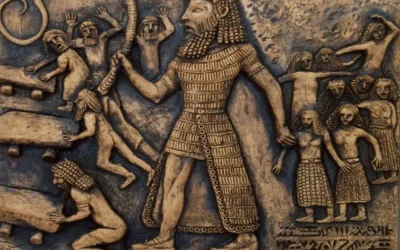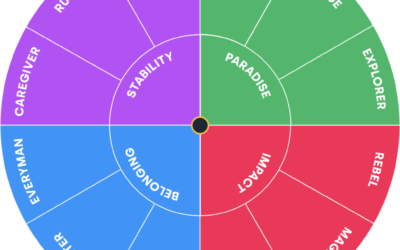What Happens in The Medea?

Euripides’s Medea is a profound and disturbing exploration of the human psyche, delving into themes of passion, revenge, gender roles, and the destructive potential of the shadow. By examining this ancient tragedy through the lens of Jungian archetypes and depth psychology, we can uncover deep insights into the nature of the self, the dynamics of love and betrayal, and the consequences of repressed rage.
I. Summary of Medea
Medea, a powerful sorceress, has left her home to be with Jason, the hero of the Argonauts. However, Jason has abandoned her to marry Glauce, the daughter of Creon, king of Corinth. Medea, consumed by jealousy and anger, plots her revenge.
After securing a place of refuge in Athens, Medea enacts her vengeful plan. She sends poisoned gifts to Glauce, killing both her and Creon. She then commits the ultimate act of revenge against Jason by murdering their own children. The play ends with Medea escaping to Athens, leaving a devastated Jason behind.
II. Archetypal Figures in Medea
Medea:
The Shadow Feminine Medea embodies the archetype of the Shadow Feminine. She represents the dark, destructive potential of the feminine psyche when pushed to extremes. Her actions, while horrific, are rooted in the wounds of betrayal and the rage of the oppressed.
Jason:
The Hero’s Shadow Jason represents the shadow side of the Hero archetype. While he is a celebrated figure, his abandonment of Medea reveals a callousness and self-interest that belies his heroic status. He embodies the way in which the heroic ego can neglect and damage the feminine psyche.
Creon and Glauce:
The Patriarchal Order Creon and Glauce represent the Patriarchal Order – the societal structures and expectations that confine and oppress women. Medea’s rage is not just directed at Jason, but at the whole system that enables and encourages his betrayal.
III. Passion and Betrayal
At the heart of Medea is the destructive potential of passion and the devastating consequences of betrayal. Medea’s love for Jason, once all-consuming, turns to hatred when he abandons her. This transformation highlights the thin line between love and hate, and the way in which the wounds of betrayal can warp the psyche.
IV. Gender and Power
The play is a powerful exploration of gender dynamics and power. Medea, as a woman and a foreigner, is doubly marginalized in Greek society. Her rage and revenge can be seen as a response to this oppression, a reclaiming of power in the face of patriarchal injustice. At the same time, her actions problematize simplistic notions of victimhood and agency.
V. The Destructive Potential of the Shadow
Medea’s actions represent the destructive potential of the shadow – the repressed, unacknowledged aspects of the psyche. When the shadow is denied and repressed, as Medea’s rage and pain have been, it can erupt in terrible ways. The play suggests that confronting and integrating the shadow is necessary for psychological wholeness and the prevention of destructive acting out.
VI. Psychological and Societal Implications
The Wounded Feminine
Medea’s character powerfully represents the wounded feminine – the part of the psyche that has been betrayed, marginalized, and oppressed by patriarchal structures. Her story highlights the psychological and societal consequences of this wounding, and the need for healing and empowerment.
The Danger of Repression
Medea’s actions illustrate the dangers of repression. When the shadow is denied and the wounds of the psyche are left to fester, the result can be explosive and destructive. The play suggests that healthy psychic functioning requires the acknowledgment and integration of all aspects of the self.
The Complexity of Power and Victimhood
Medea’s story problematizes simplistic notions of power and victimhood. While she is undoubtedly a victim of patriarchal oppression, her actions also make her a perpetrator of terrible violence. The play suggests that real understanding requires a recognition of this complexity, a moving beyond binary categories of victim and oppressor.
Read Abut Other Classical Greek Plays and Their Influence on Depth Psychology
Iphigenia in Aulis


























0 Comments